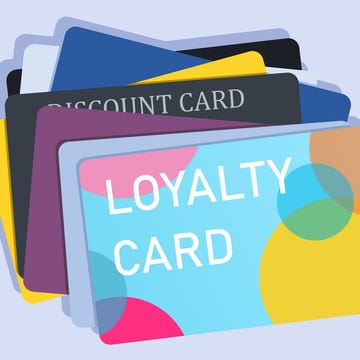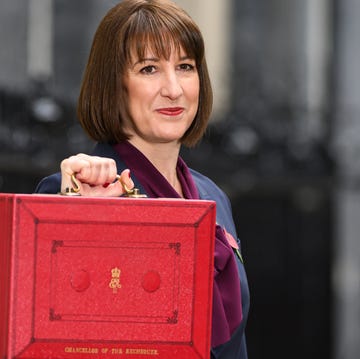The National Minimum Wage turned 25 in 2024 and has seen many changes over the years. Introduced by Tony Blair's Labour government, the plan was to help lift people out of poverty, off benefits and back into paid employment. Since its introduction in 1999, the National Minimum Wage has increased every year and paved the way for other innovations including the National Living Wage and apprenticeships.
With millions of people earning on or around this salary level, it's crucial to know your rights and what you can expect, so here's everything you need to know about the National Minimum Wage.
What are the National Minimum Wage and National Living Wage?
The National Minimum Wage and National Living Wage are the minimum hourly rates employees must be paid, by law, for work.
Workers must be at at least of school leaving age to get the National Minimum Wage. This is 16 across all four home nations, although rules differ on exactly when you have to turn 16 to leave school that year.
You can get the National Living Wage when you turn 21. Since 2016, the National Living Wage became the obligatory minimum wage payable to workers in the United Kingdom aged 21 and over.
Currently, the National Minimum Wage stands at £6.40 for under 18s, £8.60 for those aged 18 to 20 and £11.44 (the National Living Wage) for those aged 21 and over.
What about apprentices?
Apprentices are entitled to the apprentice rate if they’re either:
- aged under 19
- aged 19 or over and in the first year of their apprenticeship
The minimal hourly rate for apprentices (from April 2024) is £6.40. Those over 19 who have completed the first year of their apprenticeship must be paid the rate of either the National Minimum Wage or National Living Wage.
Do I have to pay tax if I earn the minimum wage rate?
The usual tax thresholds apply to those who earn either the National Minimum Wage or National Living Wage.
You can earn up to £12,570 for the 2024/25 tax year without having to pay Income Tax on your earnings. This is known as your ‘personal allowance’. Any income above this will be taxed.
When he was Chancellor, Rishi Sunak announced that this personal allowance level will be maintained until 2026, rather than rise with inflation, to support the UK's post-coronavirus economic recovery.
How has the National Minimum Wage changed over the years?
The National Minimum Wage was originally introduced on 1 April 1999 at the rate of £3.60 per hour for adults aged 22 and over, and £3 per hour for younger workers aged 18-21. Since then, the rates have been increased on an annual basis.
Different bands were introduced later on, such as the 16-17 year old rate, which was introduced on 1 October 2004 and the apprentice rate which was introduced on 1 October 2010. At the same time, the age of entitlement to the main rate was reduced from 22 to 21. The National Living Wage for workers aged 25 and over was introduced in April 2016 and covered workers aged 23+ between April 2021 and April 2024. From April 2024, it has covered workers aged 21 and over.
Is it illegal for an employer to pay less than the minimum wage?
It is illegal for an employer to pay less than the minimum wage, and any company that does so faces a hefty fine. In early 2024, 524 employers – including big names such as Currys, easyJet and River Island – were named and shamed by the Government for failing to pay their workers at least the National Minimum Wage, leaving more than 170,000 workers out of pocket.
Naming the offending companies was a clear message from the government that no employers, big or small, are exempt from paying their workers the statutory minimum wage. The businesses named in the Government's list have since paid back what they owe to their staff and have also faced financial penalties of up to 200 per cent of their underpayment.
Minister for Enterprise, Markets and Small Business Kevin Hollinrake said: "Employees deserve to get paid properly for the hard work they put in. While the majority of businesses already do the right thing and pay their staff what they are owed, today’s announcement sends a message to the minority who aren’t – that there are repercussions to undercutting hard work from their staff."
Not all the minimum wage underpayments were intentional, resulting from errors of calculation by the employers, but it shows how important it is for staff and employers to know exactly what they should be being paid.
If you think you are being paid less than the minimum wage, firstly talk to your employer – your line manager, or the HR or Payroll department is a good starting point. They may have made a genuine mistake and, if this is the case, ask for the money you are owed to be paid immediately.
If your employer refuses to sort your complaint, get in touch with ACAS or Citizen’s Advice for further guidance.















